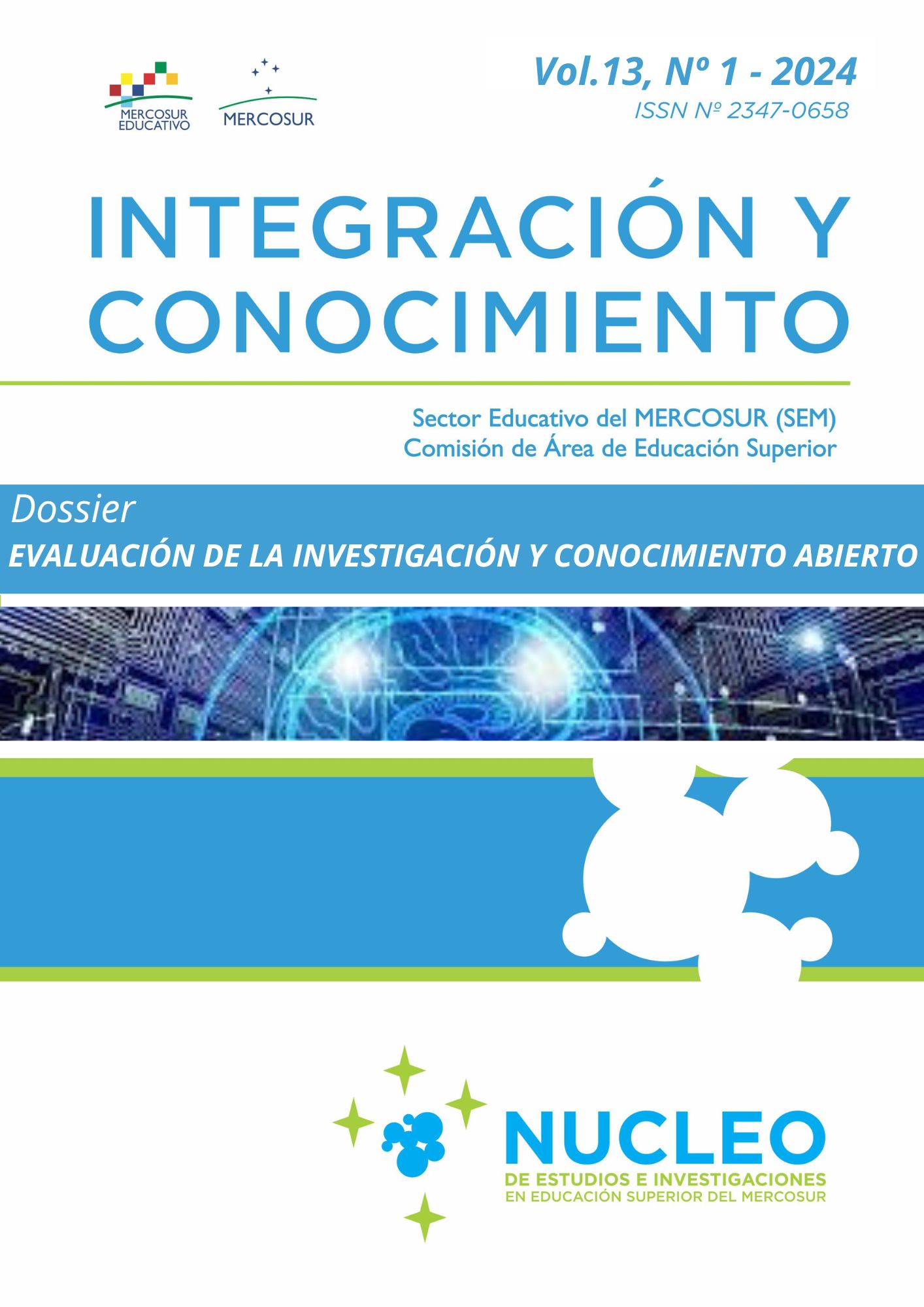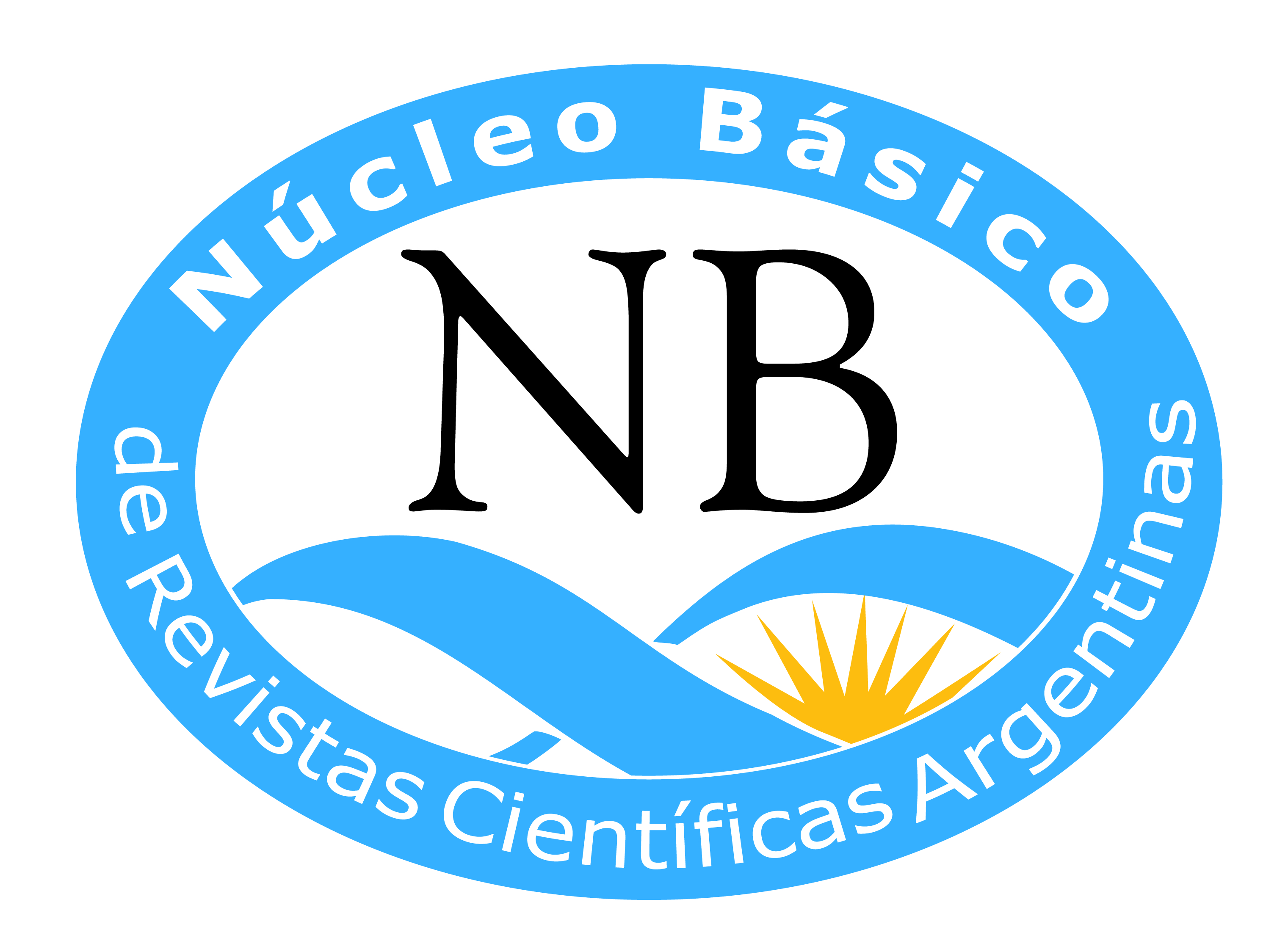EVALUATION OF RESEARCH: DON'T CHANGE, CHANGE, HOW TO CHANGE
DOI:
https://doi.org/10.61203/2347-0658.v13.n1.44216Keywords:
Academic evaluation, researcher’s survey, National System of Researchers, UruguayAbstract
This article analyzes certain results of a recent survey aimed at the universe of those who do research in Uruguay to know their opinions on various aspects associated with their work, focusing on what they think about academic evaluation, whether or not it is advisable to change it and in what directions it should be doing it. Quantitative results are presented, distinguishing the positions of various groups - women and men, academic elites, cognitive areas - and also qualitative results, derived from the hundreds of open responses received. The propensity to change shows, among other aspects, some few consensuses, a clear tendency not to change on the part of academic elites, shared opinions by less strong groups in the research hierarchy, and references to evaluation as part of other problems, for example, harmonization between academic life and family life. Based on the analysis carried out, some convergences of positions are identified that enable directions of change in how research is evaluated in Uruguay, and aspects are pointed out that require in-depth collective discussions to define whether or not to change and, above all, in which direction the change should go.
Downloads
References
Alvesson, M. y Spicer, A. (2016). (Un)Conditional surrender? Why do professionals willingly comply with managerialism. Journal of Organizational Change Management, 29(1), 29-45.
Arocena, R., Goransson, B., y Sutz, J. (2019). “Towards making research evaluation more compatible with developmental goals”. Science and Public Policy, 46 (2), 210-218.
Bensusán, G., Gras, N., Inclan, D., Rodríguez, C., Valenti, G., y Varela, G. (2018). La evaluación de los académicos: Instituciones y Sistema Nacional de Investigadores, aciertos y controversias (G. Bensusán & G. Valenti, Eds.; 1st ed.). FLACSO-México.
Bianco, M., Gras, N., y Sutz, J. (2016). Academic Evaluation: Universal Instrument? Tool for Development? Minerva, 54 (4), 399-421.
Butler, L. (2007). Assessing university research: a plea for a balanced approach. Science and Public Policy, 34(8), 565–574.
Chavarro, D., Tang, P., y Rafols, I. (2017). Why researchers publish in non-mainstream journals: Training, knowledge bridging, and gap filling. Research Policy, 46(2017), 1666-1680. doi:10.1016/j.respol.2017.08.002
Curry, S., de Rijcke, S., Hatch, A., Pillay, D., van der Weijden, I., y Wilsdon, J. (2020). The changing role of funders in responsible research assessment: progress, obstacles & the way ahead. RoRI Working Paper No. 3. doi: 10.6084/m9.figshare.13227914
Dahler-Larsen, P. (2015). The Evaluation Society: Critique, Contestability and Skepticism. Spazio Filosofico, 1(13), 21–36.
DORA. (2012). Declaration on Research Assessment. Recuperado de https://sfdora.org/read/
Ely, R., y Padavic, I. (2020). What’s Really Holding Women Back? Harvard Business Review. Recuperado de What’s Really Holding Women Back? (hbr.org).
Fochler, M., Felt, U., y Muller, R. (2016). Unsustainable Growth, Hyper-Competition, and Worth in Life Science Research: Narrowing Evaluative Repertoires in Doctoral and Postdoctoral Scientists’ Work and Lives. Minerva, 54,175-200.
FOLEC-CLACSO. (2020). Diagnóstico y propuestas para una iniciativa regional. Serie para una transformación de la Evaluación de la Ciencia en América Latina y el Caribe del Foro Latinoamericano sobre Evaluación Científica. (CLACSO 2da. Edición). Recuperado de https://www.clacso.org/ diagnostico-y-propuestas-para-una-iniciativa-regional/
FOLEC-CLACSO. (2022). Recuperado de: https://www.clacso.org/una-nueva-evaluacion-academica-y-cientifica-para-una-ciencia-con-relevancia-social-en-america-latina-y-el-caribe/
Goldin, C. (2021). Career & Family. Women’s century-long journey towards equity. Princeton: Princeton University Press.
Gras, N. (2022). Formas de evaluación de propuestas de investigación orientadas a problemas del desarrollo. Prácticas y perspectivas desde Organizaciones Nacionales de Ciencia y Tecnología e Instituciones de Educación Superior de América Latina y el Caribe. Buenos Aires: FOLEC-CLACSO. Recuperado de https://idl-bnc-idrc.dspacedirect.org/bitstream/handle/10625/
/IDL%20-%2061054.pdf?sequence=1
Gras, N. (2018). La evaluación de la investigación y su relación con la producción de conocimiento: un análisis estructural para el Sistema Nacional de Investigadores de México. (Tesis de Doctorado). UAM-X, Ciudad de México. Recuperado de http://biblioteca.xoc.uam.mx/tesis.htm? fecha=00000000&archivo=cdt115520owqe.pdf&bibliografico=181106
Han, B-C. (2012). La sociedad del cansancio. Barcelona: Herder.
Hicks, D., Wouters, P., Waltman, L., de Rijcke, S., y Rafols, I. (2015). The Leiden Manifesto for Research Metrics. Nature, 520(7548), 429–431.
Hugues, L., Hatton, J., Gower, N., y Jones, H. (s/f). Towards inclusive academic promotion. Macquarie University, Australia. Recuperado de PowerPoint Presentation (stemwomen.org.au)
Martin, B., y Whitley, R. (2010). The UK Research Assessment Exercise: A Case of Regulatory Capture? En: R. Whitley., J. Gläser., y L. Engwall. (Eds.), Reconfiguring Knowledge Production. New York: Oxford University Press.
Power, M. (1999). The Audit Society. Rituals of Verification. Oxford University Press, Oxford.
Rovelli, Laura. (2023). Evaluación responsable y ciencia abierta: agenda de reformas. Integración y Conocimiento, 12(2), 11-27. Recuperado de https://doi.org/10.61203/2347-0658.v12.n2.42029
Ryazanova, O. y Jaskiene, J. (2022). Managing individual research productivity in academic organizations: A review of the evidence and a path forward. Research Policy, 51, (2) Recuperado de https://doi.org/10.1016/j.respol.2021.104448
Skogvold, I. (2020). Time use in academia. Men and women use their time differently, but everyone works too much.Kifinfo.https://kifinfo.no/en/2018/09/men-and-women-use-their-time-differently-everyone-works-too-much
Tijssen, R. (2021). Revalorización de la excelencia en la investigación: del excelentismo a una evaluación responsable. En E. Kraemer-Mbula, R. Tijssen, M. Wallace, R. McLean, E. Kraemer-Mbula, R. Tijssen, M. Wallace, y R. McLean. (Edits.), Transformando la excelencia en la investigación. Nuevas ideas del Sur Global (pp. 68-90). Bogotá: Universidad del Rosario, African Minds.
Whitley, R. (2010). Reconfiguring the Public Sciences: The Impact of Governance Changes on Authority and Innovation in Public Science Systems. En R. Whitley., J. Glaser., y L. Engwall. (Eds.), Reconfiguring Knowledge Production (pp.3–47). New York: Oxford University Press.
Wilsdon, J., Allen, L., Belfiore, E., Campbell, P., Curry, S., Hill, S., Jones, R., Kain, R., Kerridge, S., Thelwall, M., Tinkler, J., Viney, I., Wouters, P., Hill, J., Johnson, B.(2015). The Metric Tide: Report of the Independent Review of the Role of Metrics in Research Assessment and Management.
Downloads
Published
How to Cite
Issue
Section
License
Copyright (c) 2024 Integración y Conocimiento

This work is licensed under a Creative Commons Attribution-NonCommercial-ShareAlike 4.0 International License.
Authors who have publications with this journal accept the following terms:
a. Authors shall retain their copyright and guarantee the journal the right of first publication of their work, which shall simultaneously be subject to the Creative Commons License of Recognition which allows third parties to share the work as long as its author is indicated and its first publication is this journal.
b. Authors may adopt other non-exclusive licensing agreements for the distribution of the published version of the work (e.g., depositing it in an institutional telematic archive or publishing it in a monographic volume) provided that the initial publication in this journal is indicated.
c. Authors are allowed and encouraged to disseminate their work via the Internet (e.g. in institutional telematic archives or on their website) after publication of the article, which may lead to interesting exchanges and increased citations of the published work. (See The Effect of Open Access).



